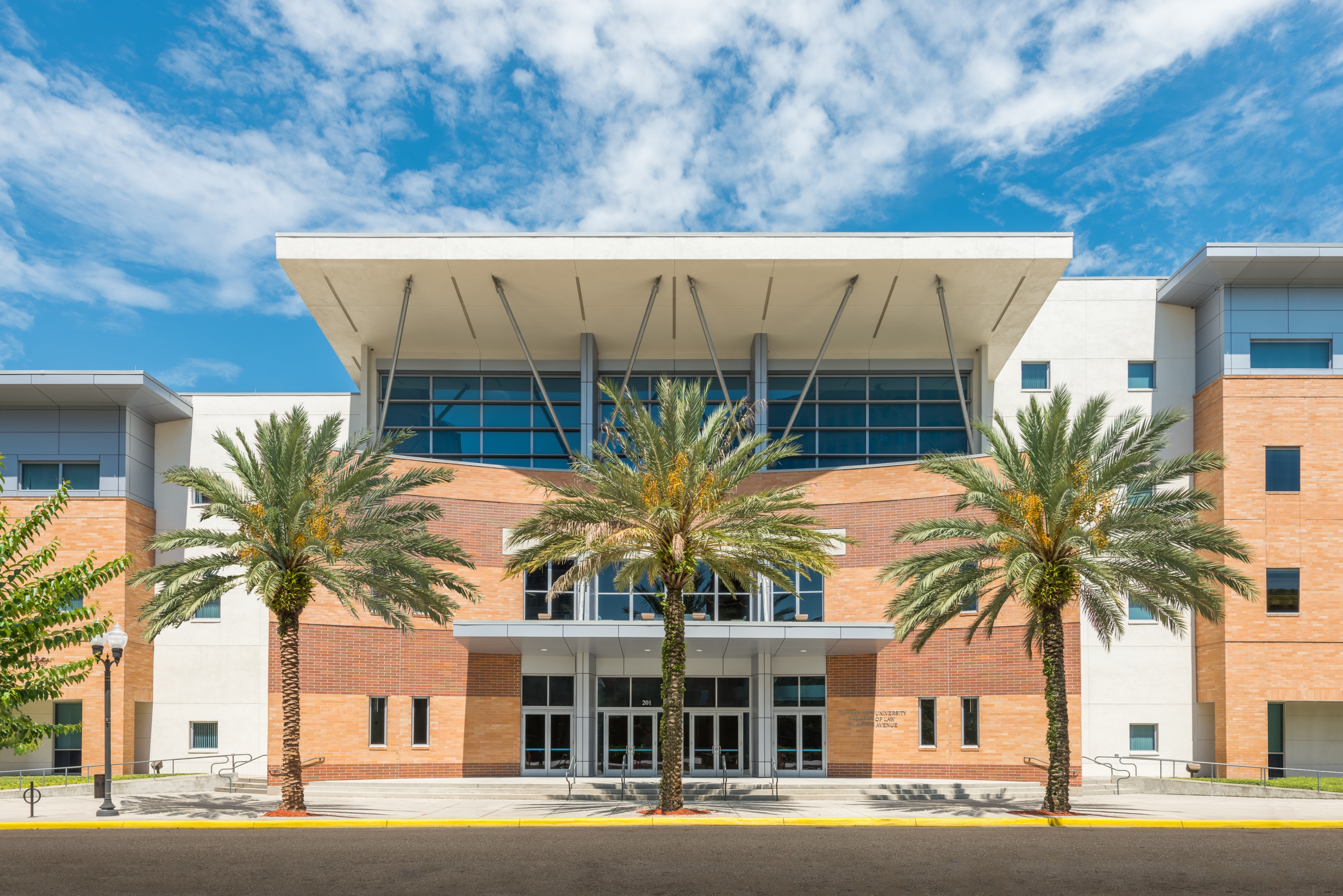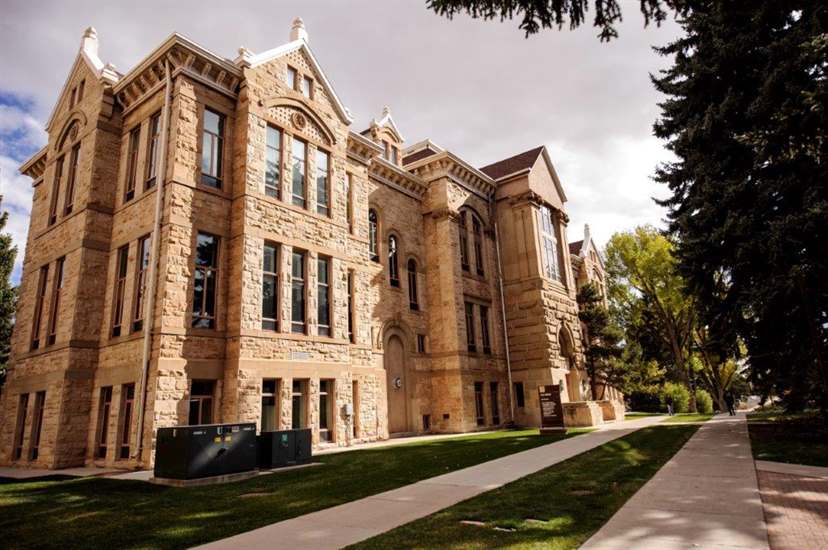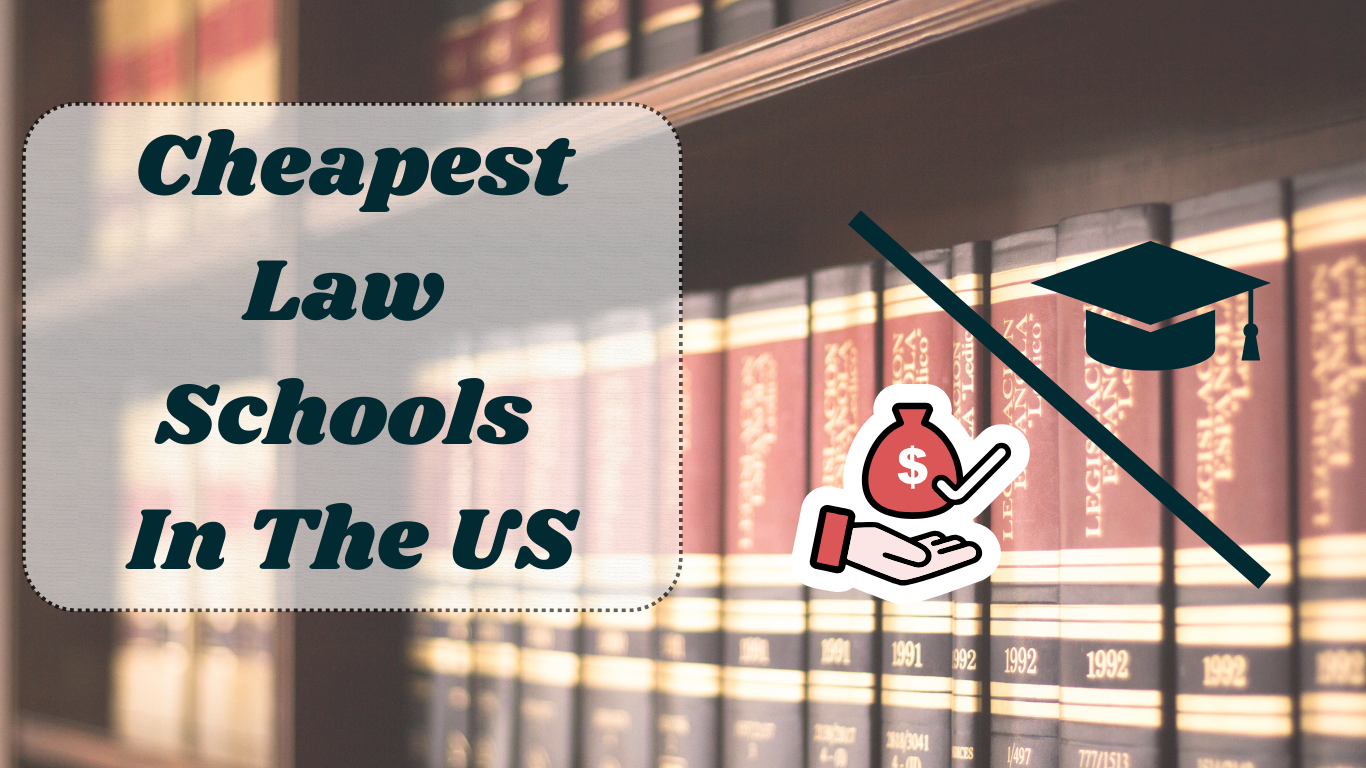So, you’re thinking about becoming a lawyer? Maybe you've dreamt of giving those closing arguments in a packed courtroom, taking down corporate giants, or making waves in human rights law. But wait—before you can get to all that, there’s the reality of paying for law school. And yeah, law school can be crazy expensive. Harvard, Yale, Stanford? They might have the prestige, but they also come with a serious price tag that could leave you swimming in debt for years.
Here’s the good news: you don’t need to drop six figures to get a quality legal education. Whether you want to focus on criminal law, corporate law, or environmental law, there are affordable law schools in the US that won’t leave you broke. Let’s dive into this handy guide to the cheapest law schools in the US, where you can get your JD without drowning in debt.
Why Go for a Cheaper Law School?
Before we jump into the list of schools, let's talk about why you might want to skip the Ivy League and look at more affordable options. Here's the thing: expensive doesn’t always mean better. Sure, those top-tier schools come with a certain prestige, but the fact is that most law schools in the US offer the same curriculum. You’re going to be studying contracts, torts, civil procedure, and legal ethics no matter where you go.
Plus, with legal hiring becoming more skills-based, many firms and organizations are more interested in what you bring to the table rather than the name on your diploma. Let’s face it, graduating with less debt can also give you more freedom to choose a career you love, instead of one you’re stuck with just to pay off loans.
Now, let’s talk numbers.

The Cost of Law School
- The average cost of law school tuition in the US is around $48,000 per year at private law schools, and $29,600 per year at public law schools for in-state students. Out-of-state tuition for public schools is typically in the $42,000 range.
- According to the American Bar Association (ABA), law students graduate with an average of $145,500 in student loan debt. Yeah, that’s a hefty number.
- On the bright side, some schools offer a JD for as low as $15,000-$25,000 per year, saving you tens of thousands compared to the national average.
Cheapest Law Schools in the US
So, where exactly can you get a law degree on a budget? Here’s a breakdown of 10 of the most affordable law schools in the US that still offer solid education and good post-grad prospects.

1. University of North Dakota School of Law
- Location: Grand Forks, ND
- In-State Tuition: ~$15,180/year
- Out-of-State Tuition: ~$33,000/year
UND School of Law is not only one of the most affordable law schools in the country but also offers small class sizes, meaning you get more face time with your professors. With a relatively low student-to-faculty ratio, you’ll receive the kind of mentorship you may miss out on at larger schools. The curriculum is rigorous, and UND offers solid bar passage rates and employment outcomes. Plus, North Dakota might just surprise you with its low cost of living.
- Bar Passage Rate: ~82%
- Employment Rate: ~90% within 10 months of graduation
UND offers a no-frills, straightforward legal education. So if you’re looking to keep things simple and affordable, this is a solid choice. You’ll still be able to take the bar and get a great job but without the sky-high tuition.

2. University of Montana Alexander Blewett III School of Law
- Location: Missoula, MT
- In-State Tuition: ~$15,160/year
- Out-of-State Tuition: ~$40,000/year
Montana is all about wide-open spaces, and the law school reflects that freedom with its affordable tuition and focus on environmental and natural resources law. It’s a small school, with a tight-knit community and a unique approach to practical lawyering skills. If you’re someone who wants a career in the great outdoors (think environmental law or public land management), this might be the perfect school for you.
![Southern University Law Center [New Orleans] (1947- ) •](https://www.blackpast.org/wp-content/uploads/AA_Lenoir_Hall_Southern_University_Law_Center_New_Orleans.jpg)
3. Southern University Law Center
- Location: Baton Rouge, LA
- In-State Tuition: ~$11,338/year
- Out-of-State Tuition: ~$18,000/year
Southern University is one of the cheapest law schools in the country, hands down. The SULC has a history rooted in civil rights law, and their graduates have gone on to careers in government, private practice, and public interest work. You’ll find a commitment to diversity here that’s rare in many law schools, and their legal clinics offer hands-on experience that prepares you for real-world practice.
- Bar Passage Rate: ~62%
- Employment Rate: ~75% within 10 months of graduation
This school is a steal. Whether you want to work in government, private practice, or nonprofit, SULC will give you the education you need without wrecking your bank account.

4. Florida A&M University College of Law
- Location: Orlando, FL
- In-State Tuition: ~$14,131/year
- Out-of-State Tuition: ~$34,000/year
FAMU Law offers an affordable route to a JD, especially for Florida residents. Located in sunny Orlando, the school is known for its diverse student body and emphasis on preparing students for public service and pro bono work. FAMU also offers numerous scholarships and fellowships to reduce costs even further, so you’re looking at some serious savings here.

5. University of Arkansas at Little Rock, William H. Bowen School of Law
- Location: Little Rock, AR
- In-State Tuition: ~$16,000/year
- Out-of-State Tuition: ~$31,000/year
UALR Bowen School of Law is well-regarded for its flexible part-time programs, making it a great option for working professionals. The school also prides itself on its practical, hands-on legal education, with a variety of legal clinics and externships. If you’re interested in balancing school with work, this might be one of the best affordable options in the US.

6. University of the District of Columbia, David A. Clarke School of Law
- Location: Washington, DC
- In-State Tuition: ~$12,134/year
- Out-of-State Tuition: ~$24,000/year
For those dreaming of practicing law in the nation’s capital, UDC Law offers a highly affordable tuition rate, especially given its location. Known for its focus on public interest law, the school is deeply rooted in activism and social justice. The school’s clinical programs are consistently ranked among the best in the country, giving you ample opportunities to work on real cases before you even graduate.

7. CUNY School of Law
- Location: Long Island City, NY
- In-State Tuition: ~$15,000/year
- Out-of-State Tuition: ~$25,000/year
The City University of New York (CUNY) School of Law is a great option for those looking to make an impact in public interest law without a crushing amount of debt. CUNY Law is well-known for its focus on legal services for underserved communities, and its tuition is extremely affordable compared to other New York schools. Plus, the school’s proximity to New York City means tons of networking opportunities.

8. University of South Dakota School of Law
- Location: Vermillion, SD
- In-State Tuition: ~$14,000/year
- Out-of-State Tuition: ~$28,000/year
USD Law is one of the most affordable options for those interested in rural law or public interest law. The school boasts impressive bar passage rates and employment outcomes, especially in the Midwest. South Dakota’s law school is known for its tight-knit community, giving students a personalized education experience, and the cost of living in Vermillion is super low, making it even more affordable overall.

9. Texas Southern University Thurgood Marshall School of Law
- Location: Houston, TX
- In-State Tuition: ~$20,418/year
- Out-of-State Tuition: ~$27,000/year
TSU’s Thurgood Marshall School of Law offers an affordable legal education with a focus on diversity and serving underserved populations. The school has a strong commitment to public interest law, and its location in Houston—the fourth-largest city in the US—offers a ton of opportunities for internships and externships. Plus, Houston's cost of living is lower than most large cities, which can save you even more money while attending law school.

10. University of Wyoming College of Law
- Location: Laramie, WY
- In-State Tuition: ~$14,000/year
- Out-of-State Tuition: ~$31,000/year
University of Wyoming College of Law is another super affordable option, with low tuition and an emphasis on practical legal skills. Students here benefit from small class sizes and extensive hands-on experience through legal clinics and externships. Wyoming’s rural setting is ideal for those interested in areas like environmental law, natural resource law, or rural law, and the cost of living in Laramie is among the lowest in the US.
- Bar Passage Rate: ~70%
- Employment Rate: ~78% within 10 months of graduation
CUNY Law is a great fit for students looking to make a real impact while keeping tuition costs under control in the expensive NYC market.
Ways to Lower Law School Costs Even Further

Scholarships and Grants
Many affordable law schools offer generous merit-based or need-based scholarships. Do your research, and don’t be afraid to ask admissions offices directly about scholarship opportunities.
In-State Tuition
Establishing residency in the state where your law school is located can save you thousands of dollars. This is particularly useful if you plan to attend a public school.
Part-Time Programs
Some law schools offer part-time JD programs, allowing you to work while studying. It may take longer to finish, but you can pay for tuition as you go and graduate with less debt.
Loan Forgiveness Programs
If you’re planning to go into public interest law, many schools (and states) offer loan forgiveness programs. These can eliminate a huge portion of your debt if you meet certain requirements after graduation.
Living Costs
Consider the cost of living in the city or town where your law school is located. Law schools in rural areas or smaller towns typically come with much lower living costs compared to schools in large, expensive cities.
Is Cheap Law School Worth It?
Absolutely! Here’s the thing: your legal education is an investment, but it doesn’t need to break the bank. You’ll still be able to sit for the bar exam, find meaningful employment, and pursue your dream legal career without the soul-crushing debt that often comes with law school.
If you choose a more affordable law school, you're likely to graduate with significantly less debt, giving you the freedom to take the job that you want, rather than the one that pays the most. So, whether you want to practice criminal law, help fight climate change, or work on Wall Street, there's an affordable path that can get you there.
FAQs
1. What makes a law school “cheap” and still reputable?
When we say a law school is “cheap,” we’re referring to its lower tuition compared to the average cost of law school in the US. A reputable yet affordable law school provides a solid legal education, has accredited programs (usually by the American Bar Association), and prepares students well for the bar exam and their future careers. It’s not just about the price tag; it’s about the quality of education and the opportunities you’ll have.
2. Are affordable law schools less competitive?
Not necessarily. Many affordable law schools have rigorous admission standards and competitive programs. The cost doesn’t always reflect the quality of the education you’ll receive. In fact, some schools on our list are known for their strong legal programs and excellent bar passage rates. It’s all about finding the right fit for your career goals and budget.
3. How can I find out if a cheaper law school is a good fit for me?
Start by looking at the school’s bar passage rates, employment statistics, and curriculum. Reach out to current students or alumni to get their perspectives. Also, consider factors like location, opportunities for internships, and areas of specialization. Visiting the campus, if possible, can also give you a feel for the environment and resources.
4. What are some hidden costs of law school that I should be aware of?
Beyond tuition, be prepared for additional costs like books and supplies, bar exam fees, bar review courses, health insurance, and living expenses. Even at a more affordable law school, these costs can add up, so it’s essential to budget for them. Sometimes, schools offer fee waivers or financial aid that can help cover these expenses.
5. Can I still get scholarships at cheaper law schools?
Absolutely! Many affordable law schools offer scholarships based on merit, need, or specific criteria like community service or diversity. Be sure to check the school’s financial aid website and apply for any scholarships or grants for which you qualify. Even at lower-cost institutions, there’s often money available to help offset costs.
6. What kind of job opportunities can I expect from a less expensive law school?
Job opportunities can vary depending on the school’s location and its network within the legal community. Affordable law schools often have strong connections in their regions and offer internships and clinics that provide valuable experience. While prestige can play a role in job placement, many employers are more interested in your skills and experience than the name of your law school.
7. Do less expensive law schools offer the same support services as pricier ones?
Many affordable law schools provide excellent support services, including academic advising, career services, and mental health resources. While the facilities might not be as flashy as those at more expensive schools, the support you receive can still be top-notch. Check out what services are available and how they align with your needs.
8. Is it worth considering part-time or evening programs at cheaper law schools?
Part-time or evening programs can be a great option if you need to work while attending school or if you have other commitments. Many cheaper law schools offer these flexible schedules, allowing you to earn your JD while managing other responsibilities. It’s a good way to balance your finances and your education.
9. How do loan forgiveness programs work, and are they available at cheaper law schools?
Loan forgiveness programs are designed to help those who work in the public interest or nonprofit sectors by forgiving a portion of their student loans after a certain period. These programs are often available regardless of where you went to law school, but some affordable schools have strong public interest programs that can make qualifying for loan forgiveness easier. Be sure to research specific programs and requirements.
10. Can I transfer to a more prestigious law school later if I start at a cheaper one?
Transferring is possible, but it can be challenging. It often depends on your academic performance, the courses you’ve completed, and the policies of the law schools involved. If you excel at a less expensive law school and want to transfer to a more prestigious one, it’s worth exploring, but be prepared for a competitive process. The key is to make the most of your experience at any law school you attend.
